Among the six candidates for the upcoming presidential elections in Iran, 59-year-old Saeed Jalili stands out as the only one directly appointed by Ali Khamenei in several roles.
The appointments underscore the level of trust the Supreme Leader has in him, indicating his pivotal role in the government of the Islamic Republic, where decisions are greatly influenced by Khamenei's opinion.
Since September 2007, Jalili has served as the representative of the Supreme Leader of the Islamic Republic in the Supreme National Security Council.
During the initial six years of this tenure, he held the position of secretary of the council and served as Iran's chief nuclear negotiator.
Additionally, Khamenei has issued another directive appointing him as a member of the Strategic Council of Foreign Relations.
Jalili's position is highlighted by his rare encounter and discussion with William Burns, the Director of the US Central Intelligence Agency (CIA), for 45 minutes.
Saeed Jalili is a veteran of the Iran-Iraq war. Amidst his university studies in 1986, he departed from his birthplace Mashhad for the "Karbala 5" operation, aimed at conquering the port of Basra in southern Iraq.
Iran faced a catastrophic failure in this operation, marking it as one of the deadliest operations of the war.
Jalili sustained injuries to his right leg during this operation, leading to its amputation in a field hospital established due to the lack of necessary medical equipment.
This injury accounts for his difficulty in walking with a prosthetic leg.
Following the war, Jalili pursued further education at a university that sought to become the school of governance of the Islamic Republic.
This institution was originally known as the Tehran branch of Harvard University but underwent a name and identity change to Imam Sadegh University after the 1979 Revolution and the confiscation of its property.
His doctoral thesis at this university was titled "The Paradigm of Political Thought in Islam," and he wrote a book titled "Foreign Policy of the Prophet of Islam."
The politician of the Islamic Republic has contested presidential elections thrice in pursuit of securing the second-highest position in the Islamic Republic.
On his second attempt, he withdrew his candidacy in favor of Ebrahim Raisi in 2021.
His name first gained prominence after Mahmoud Ahmadinejad's election in the presidential elections of 2005, although he was already a familiar figure within Iran's Ministry of Foreign Affairs, both for those who secured positions and those who were unsuccessful due to his influence.
Within two years of joining the Foreign Ministry, coinciding with the start of Khamenei's leadership in 1989, Jalili assumed the role of head of the Inspection Organization, wielding considerable authority in selection, recruitment, and security affairs.
Over 12 years, Jalili held various positions within the Ministry of Foreign Affairs, including a stint in the European and American Department during Mohammad Khatami's second presidential term, coinciding with a period of improved relations between Iran and the West.
In the early 2000s, Jalili transitioned to another role within Ali Khamenei's office, serving as the director of the "current investigations" office.
His continued influence there paved the way for his return to government affairs during Ahmadinejad's administration.
While he didn't ascend to the foreign ministry, he assumed the position of deputy for European and American affairs.
This role positioned him as a potential candidate for a position even more influential than the ministry itself: Secretary of the Supreme National Security Council.
In 2007, Jalili attained a position held by only two individuals in the history of the Islamic Republic before him, and subsequently, by two military officers, Major General Ali Shamkhani and Brigadier General Ali Akbar Ahmadian.
The Supreme National Security Council, established after the revision of the Constitution of the Islamic Republic in 1989, held considerable authority with its resolutions approved by Ali Khamenei.
This elevation marked a remarkable ascent for Jalili within Iran's power hierarchy, transforming him from a relatively obscure figure to a pivotal player within the country's political landscape.
His six-year tenure in this position coincided with the peak of international tensions surrounding the Islamic Republic's nuclear program.
Under Ali Larijani's leadership, the issue was escalated to the UN Security Council, resulting in three resolutions backed by China and Russia that brought Iran under the seventh chapter of the UN Charter - a designation reserved for governments whose actions pose threats to global peace and security.
The most stringent resolution in the history of Iran's relations with the Security Council was issued in June 2010.
Resolution 1929 mandated member states to inspect any ship or aircraft suspected of transporting nuclear materials or weapons to Iran, implicitly authorizing military action against the Islamic Republic.
This resolution was passed amid Jalili's protracted and ultimately fruitless negotiations with world powers.
During his tenure as the deputy for European and American affairs at the Ministry of Foreign Affairs, Jalili faced an unprecedented chill in relations between Iran and Western countries, with diplomatic traffic grinding to a halt.
Ahmadinejad's only European trip to Italy, marred by controversy, epitomized the strained relations, culminating in a meeting only with Robert Mugabe, former Zimbabwe's leader under international sanctions.
Jalili found himself thrust into the heart of Iran's most contentious contemporary issue - the nuclear affair - amid deteriorating relations with the West.
Despite his position as the deputy for European and American affairs, Jalili remained critical of Western relations.
Even in his election speeches this month, he reiterated his belief that Iran did not need relations with the West, attributing Iran's hardships only to Western actions and disregarding any role played by the Iranian government or Khamenei.
His second-in-command during the nuclear negotiations, Ali Bagheri Kani, now the Acting Minister of Foreign Affairs, spearheaded efforts to revive the nuclear deal - a task deemed impossible by Jalili, who viewed the agreement as inherently damaging.
Diplomats who interacted closely with Jalili during his six-year tenure described him as uncompromising, prioritizing criticism of the West over all else.
Rather than presenting himself as an appointee of Ahmadinejad, he consistently positioned himself as Khamenei's representative in the Supreme National Security Council during negotiations with Western counterparts.
During Ebrahim Raisi's presidency over the last three years, Saeed Jalili continued to serve as Khamenei's representative in the Supreme National Security Council, without holding an official government position.
However, those affiliated with Raisi's government often refer to him as the mastermind behind the scenes, potentially the most influential figure in government decisions.
Jalili is a supporter of the Internet Protection Plan, which, despite its name, seeks to impose unprecedented restrictions on the internet in Iran.
He also supports initiatives such as the Hijab and Chastity Plan, advocating for strict policies mandating hijab usage.
Any resistance against national sentiments within the government is typically met with opposition from Saeed Jalili, a trusted confidant of Khamenei.
Public perception of him is fraught with suspicion.
Despite his anti-American stance, he remains one of the few figures in the Islamic Republic not sanctioned by the United States.
Critics, predominantly young people from the 2000s generation, say that his influence has waned in recent years.
Jalili himself admits to forming a "shadow government," claiming to have provided solutions for selling oil despite international sanctions.
In his election speeches, he boasted about facilitating oil sales growth during Raisi's tenure, reaching over 1.5 million barrels per day.
Although various figures circulate regarding Iran's oil discounts to China, estimates range between $12 and $15 per barrel.
Considering Iran's average oil export to China, these discounts translate to billions of dollars in revenue losses for the Iranian people - a scheme Jalili attributes to his "shadow government's solution."
Now, he seeks to transition from the shadows to the forefront by running for the presidency in 2024.







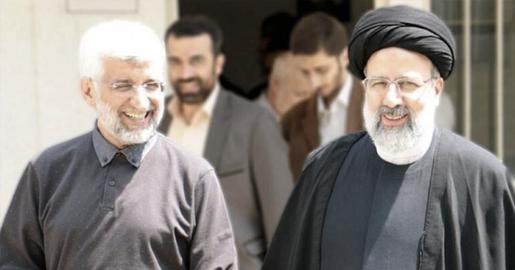










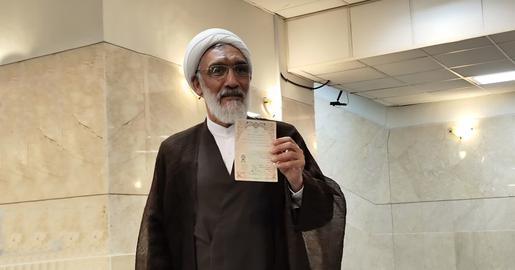
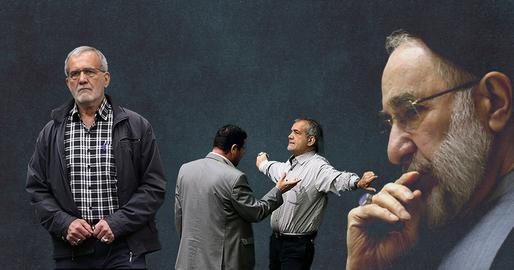



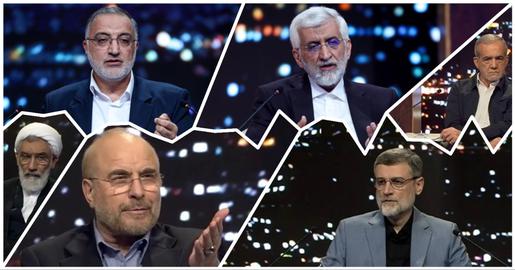


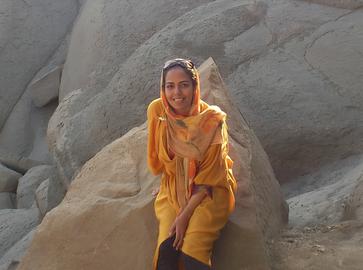
comments